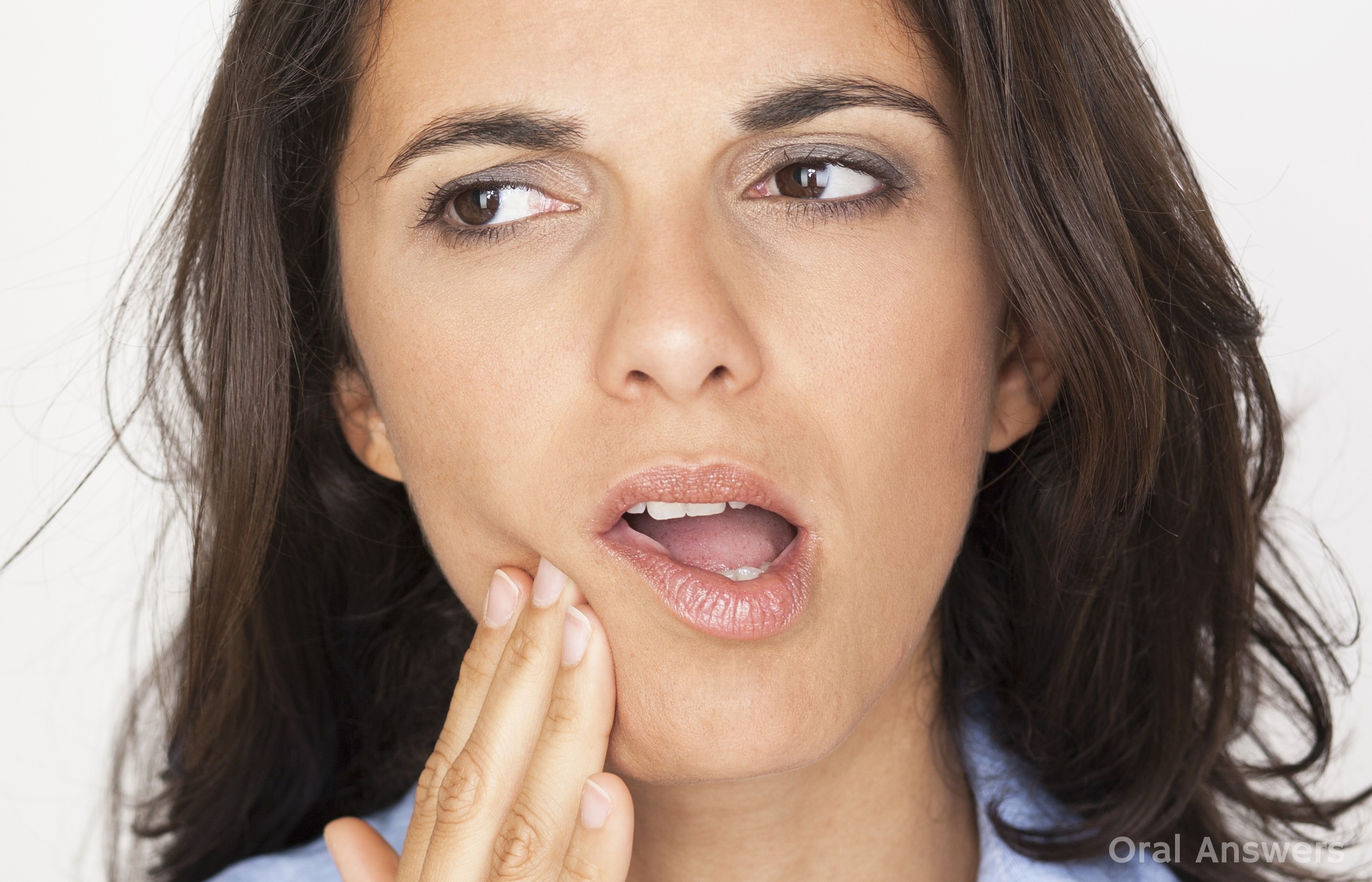Many people wonder what they should do when they come home from the dentist after getting a filling and notice that their bite isn’t quite right. If you end up having problems with a filling, it’s always best to check back with your dentist to see if you have a high filling.
If your filling is high, the dentist can simply smooth it down.  Smoothing down a filling is usually a quick procedure and doesn’t require any injections.
Smoothing down a filling is usually a quick procedure and doesn’t require any injections.
Here are seven problems that a high filling can cause.
Problems That a High Filling Can Cause
Keep in mind that some people with a high filling may experience many of these problems while others might not go through any of these difficulties.
1 – Biting Pain
The ligament may become inflamed around the tooth, causing the tooth to hurt when you bite down on it. This may affect the tooth with the high filling, but it can also affect other teeth if the high filling has thrown off your bite.
2 – Aching and Sensitivity
The tooth may develop pulpitis. It could become sensitive to hot and cold or it may simply ache.
Find out more about pulpitis here.
3 – Excessive Tooth Wear
The tooth can wear down rapidly. Also, other teeth may wear down if the high filling causes you to shift your bite slightly.
Learn about the four ways that your teeth get worn down.
4 – Loose Teeth
The tooth can become loose. If the high filling causes your jaw to shift, other teeth can become loose if they are subjected to high forces that didn’t exist before the high filling.
5 – Muscle Pain
The muscles in your jaw can ache because your bite has changed and the muscles are forced to adapt after so many years of moving your jaw in it’s natural bite. This can make it difficult to open your mouth and/or chew your food.
6 – TMJ Problems
Problems with your temporomandibular joint (TMJ) can occur due to the abnormal movement that now takes place due to the high filling.
7 – Headaches and Stress
The muscle pain coupled with the TMJ pain can bring on headaches and increased stress in your life.
Don’t Ignore a High Filling
If you think that you have a high filling and you are in pain, it’s a good idea to get it checked out before a small problem turns into a bigger one.
If you have any questions, comments, or personal experiences, please share them below!

I recently had a filling done on my 2nd premolar, and have had the filling shaved down after finding it to be high. I’ve noticed now that the tooth is a little bit loose. Will it tighten back up on it’s own?
I had a cavity done earlier this month (3rd tooth on the lower left) and noticed some discomfort when chewing. I went back after 2 weeks figuring it was a high filling. They did a cold test on my tooth because the filling had been done close to the nerve, and I didn’t have any hot/cold sensitivity. The nurse filed the filling down and I have no pain chewing anymore, which is lovely. BUT, I do have a sore spot in my left jaw almost directly under my earlobe. I figure this might be due to having that high filling for two weeks. Is this TMJ pain? Should I mention it to my dentist when I go back for a cleaning next week or wait for it to go away on its’ own?
Hi this really helped a lot cuz I just had a filing a day ago,
I had an intervention a couple of years ago, i think I even jad a root canal done, and afterwards J had a porcelan filling done. So far so good, but now I don’t know, I looked in the mirror and there was no cavity or iflamation to speak of, but there is something, not exactly pain mind you…….but more of a preassure that builds up right at the filling, At first it wasnt that bad, now…..it kinda keeps me awake. Oh and my wisdom tooth is coming out….is it possible that that tooth, because it’s growing, might push the other and cause said discomfort? Or is it an entirely different matter altogether? In short……how can I make the pain subside? If inly just a little….Thanks.
very well written thanks
I am afraid to have my bite adjusted on the tooth because it could make my other teeth higher AND cause other bite problems. But the tooth that is hitting high, is starting to throb because it’s the only tooth I am hitting. If I let it go, will it eventually need a root canal?
I was diagnosed with trigeminal neuralgia 5 months ago. My dental history was never fully considered. Doctors looked at my teeth briefly and said they were fine. That’s when I received the diagnosis for TN. The meds for TN (anticonvulsants) don’t make my pain go away. Hydrocodone and a muscle relaxer help relieve my pain. Doctors are looking at me weird when I say hydrocodone help relieve the pain because they told me opioids don’t work for TN. Why is it helping me then? I had 3 fillings on one side of my mouth all in one day (same as the location of neuralgia) done 2 years ago. It hurt so bad , i never went back even though I could feel that 1-2 teeth were too high. If I get these teeth shaved down, will my damaged nerve be able to repair itself or will the tooth need to be pulled.? Is it possible that I don’t have TN, and have I been wrongly diagnosed?
Dear Tom,
How long can it take a high filling to cause sensitivity? Weeks ago in May I got a deep cavity filled on my right, bottom, back tooth and one cavity filled on the right, back tooth directly above it on my top row of teeth. For weeks I rarely had sensitivity to cold drinks and it wasn’t very painful when it did occur. But for the last few days, when I drink anything cold, the back right part of my jaw (where I had the cavities filled) hurts a lot when exposed to the cold liquid. When I thirst for cold milk, orange juice, or water (not even ice cold water!) I am guaranteed to have an extreme pain in the back of my right jaw. I am not sure if this sudden extreme sensitivity to cold is caused by a high filling, since it has been almost 2 months since I got my fillings. Do you think it could be something else, and do I have to talk to my dentist or can I find a way to resolve this problem myself?